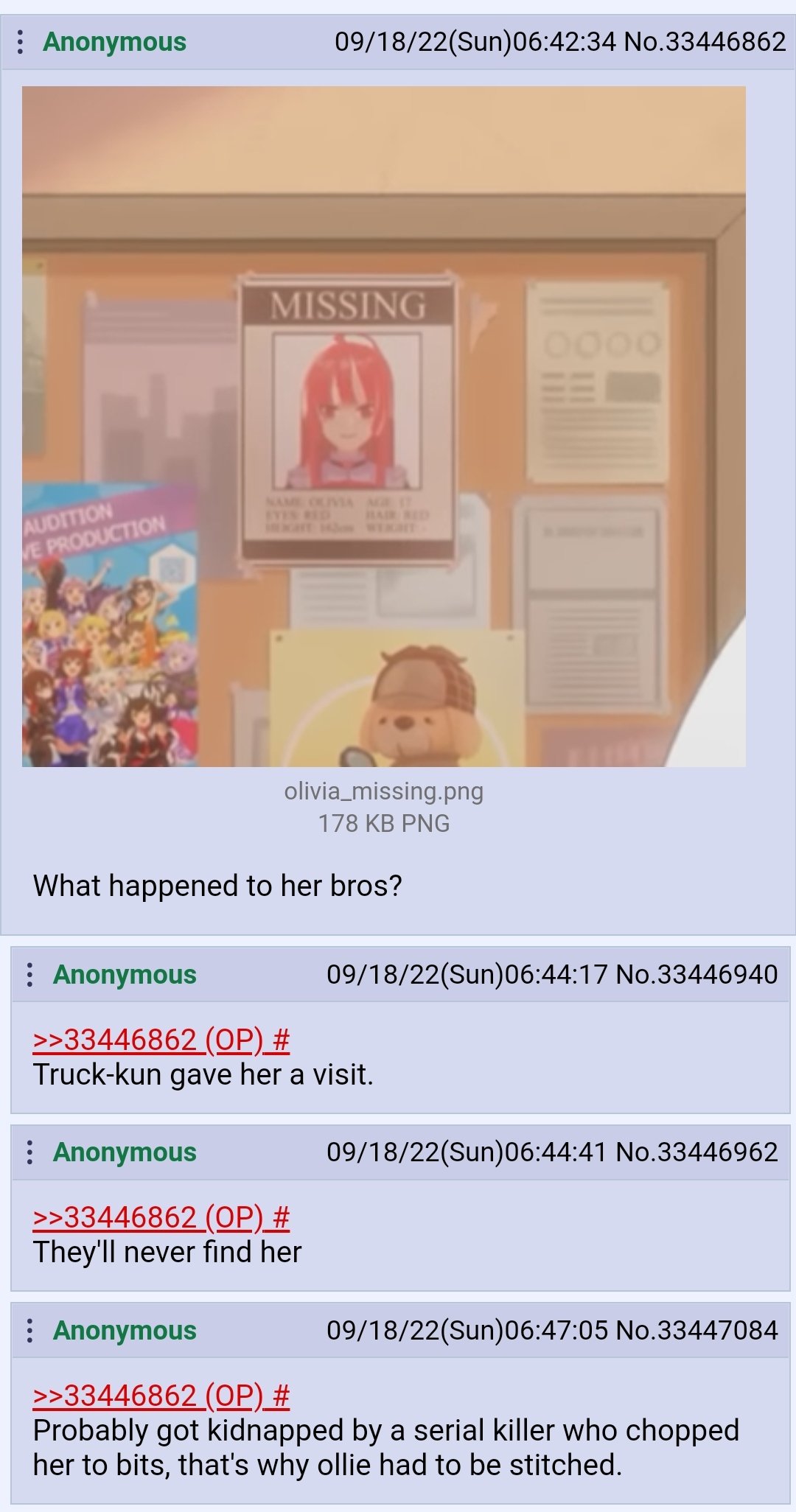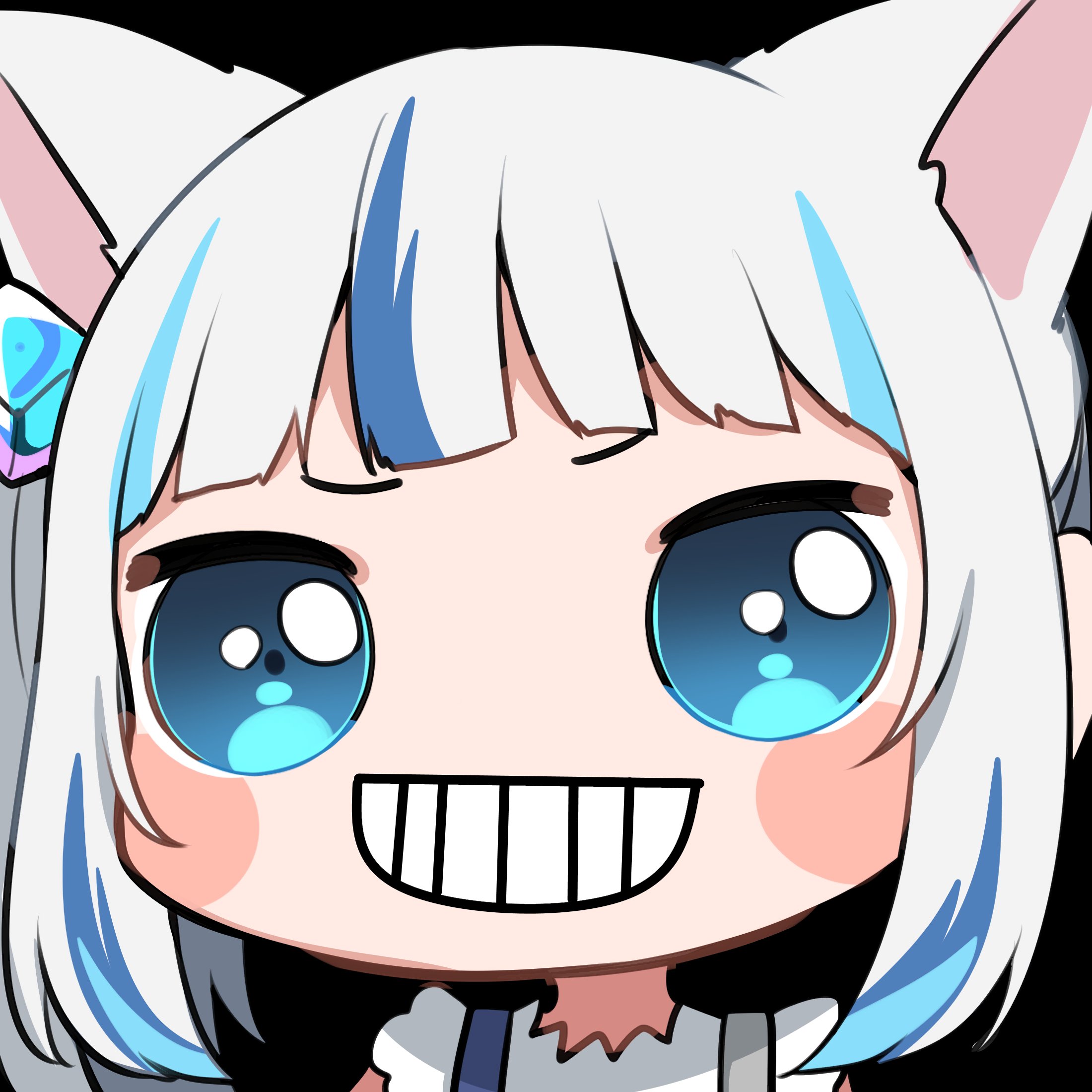4chan VT - Exploring Virtual Culture And Digital Spaces
Have you ever stopped to think about where some of the internet's most recognizable quirks and cultural moments actually come from? It's a rather interesting question, especially when you consider how quickly things move online. A lot of what we see and share today, from funny pictures to catchy phrases, seems to have roots in places that are, well, a little bit out of the mainstream.
There is a particular spot on the web, a type of image-sharing website, that has, in some respects, played a really big part in shaping how we talk and interact online. It's a place where people often put up pictures and chat about them, usually without using their real names. This kind of site, often called an imageboard, lets the newest things posted show up first, which keeps the conversations moving very, very quickly.
This digital hangout is divided into many different sections, each with its own focus and set of loose guidelines. It is also, apparently, a spot where some truly popular online entertainers, the kind who use virtual characters, got their start or found a huge audience. So, if you are at all curious about the origins of internet culture and the rise of virtual performers, this particular corner of the web holds quite a few stories.
- The Inspiring Story Of Erin Brockovich Environmental Crusader And Hero
- Ultimate Guide To The Intriguing Kathd Tv Series
- The Ultimate Guide To Yumi Etos Captivating Hamster Encounters
- Hdhub4u The Ultimate Destination For Nit Entertainment
- Discover Topnotch Kannada Entertainment With 5rulz Kannada
Table of Contents
- Who is Hiroyuki Nishimura, the Mind Behind 4chan?
- What is 4chan, Really?
- How Did 4chan Shape Online Culture?
- What About 4chan VT and Virtual Entertainers?
- Why Do 4chan Links Break, and How Can We Fix Them?
- What Happened to 4chan's Influence?
- What's the Deal with 4chan X and 4chan XT?
- Is 4chan Always Anonymous?
Who is Hiroyuki Nishimura, the Mind Behind 4chan?
There's a person from Japan, a kind of internet business owner, who is quite connected to the beginnings of these sorts of online communities. His name is Hiroyuki Nishimura, and he was born on November 16, 1976. He is, you know, someone who really helped set up the way many people interact online, especially through message boards. He actually started a very well-known message board called 2channel, which, in a way, laid some groundwork for other similar places to exist.
This same individual, Hiroyuki Nishimura, also holds a position as an administrator for the particular imageboard we are talking about, 4chan. He was, in fact, the main person in charge of running this site for a very long stretch of time, more than eleven years, before he decided to step away from that role in January of 20. So, it is clear that he had a pretty significant hand in guiding the site's path for a considerable period.
His involvement with these online spaces suggests a deep understanding of how people communicate and share things on the internet, which is, in some respects, pretty fascinating. He has, apparently, been a key figure in developing and managing platforms that have become quite popular for various kinds of discussions and content sharing. It is interesting to see how one person's vision can shape so much of what happens in the digital world, like your, you know, online hangouts.
- Learn More About Ben Meiselass Work With Baby Victims
- The Ultimate Guide To Indian Leaked Mms Sites Uncover The Secrets
- P Diddys Wife Everything You Need To Know
- Discover The Unveiled Net Worth Of Business Magnate Hakan Sabanci
- Watch Latest Movies And Tv Shows On Hd Hub 4u
Personal Details - Hiroyuki Nishimura
| Full Name | Hiroyuki Nishimura |
| Date of Birth | November 16, 1976 |
| Nationality | Japanese |
| Known For | Founder of 2channel, Administrator of 4chan |
What is 4chan, Really?
So, what exactly is this place called 4chan? Well, to put it simply, it's an online spot where people share and talk about pictures and other images. It's a website that uses the English language, and it actually takes some of its ideas from a Japanese site called Futaba Channel. These kinds of online places, where pictures are the main thing people post and discuss, are generally called imageboards. It's a pretty straightforward idea, really.
A distinctive feature of 4chan is that people who post things there often do so without giving their names. They can, in a way, remain anonymous. This means you don't always know who is saying what, which, you know, changes the feel of the conversations quite a bit. The way it works is that the newest things people put up appear at the very top, pushing older posts further down. This keeps everything feeling fresh and moving along pretty quickly, so there is always something new to see or talk about.
The site itself is split up into many different sections, which they call "boards." Each of these boards is usually about a particular topic, and they have their own set of informal rules or ways of doing things. For example, you might find a board for general discussions, another for specific kinds of pictures, and so on. It's like a collection of many smaller communities, all under one larger roof, and that, is that, a pretty unique setup for an online place.
How Did 4chan Shape Online Culture?
If you think about where a lot of the internet's quirky humor and widely shared bits of culture came from, 4chan is, honestly, a place that pops up quite a bit. It was, in some respects, a very fertile ground where new ideas and jokes would start to spread. It's like it was both the starting point for internet culture as we know it, and also, kind of, a warning story about what can happen when people can say things without anyone knowing who they are, especially when that anonymity is used in ways that are not so great.
This site is where a bunch of really popular internet phenomena first caught on. Things like "lolcats," which are those funny pictures of cats with silly captions, or "rickrolls," where you trick someone into clicking a link that leads to a music video. And then there's Pepe the Frog, a character that became super well-known, and Doge, the Shiba Inu dog with the funny inner monologue. All of these, actually, started to gain traction and spread widely because of this place. It was, you know, a sort of incubator for what we now call "meme culture" even before the word "meme" became something everyone used every day.
It helped, in a way, to develop how people create and share these short, often humorous, pieces of media that spread from person to person online. The site's unique setup, with its quick pace and anonymous posting, really seemed to encourage this kind of creative, sometimes a little bit chaotic, sharing. It was, for a time, a truly central spot for new online trends to appear and grow, and that, is pretty much how it influenced so much of what we see online today, particularly in the realm of 4chan vt and general internet humor.
What About 4chan VT and Virtual Entertainers?
Now, let's talk a little about the "VT" part, which connects to a really interesting area of online entertainment. A "VTuber," or a virtual YouTuber, is basically an online performer who uses a computer-generated character as their public face. Instead of showing their actual self, they use an avatar that moves and talks like them. This whole idea, you know, has become incredibly popular, and 4chan has had a bit of a connection to it.
It was Kizuna Ai, actually, who was the first virtual entertainer to really become widely known and achieve a lot of popularity. Her success showed just how much interest there was in this new kind of online performance. Since then, the entire industry around virtual entertainers has grown a lot. We've seen some of the most popular content creators on the whole planet become virtual entertainers. For example, people like Gura and Ironmouse are, honestly, dominating their respective areas of online content creation. They have, in a way, huge followings and are incredibly successful, showing just how far this concept has come.
The discussion around these virtual entertainers, including those who are part of the 4chan vt community, is quite active on certain parts of the imageboard. People share clips, talk about their favorite virtual characters, and discuss the latest news from this growing field. It's a space where fans can gather and share their enthusiasm for this particular kind of online performance. So, while 4chan is known for many things, its connection to the rise and discussion of virtual entertainers is, you know, a pretty significant aspect for many who visit the site.
Why Do 4chan Links Break, and How Can We Fix Them?
One of the persistent little problems with online discussions that happen on sites like 4chan is that the links to old conversations or specific posts often stop working. You might click on a link expecting to see something, and instead, you get an error message. This happens because, apparently, old posts and entire threads on 4chan are eventually taken down. So, a link that worked perfectly fine yesterday might be completely useless today. It's, you know, a bit of a bummer when you're trying to look something up or show someone an old discussion.
There are, thankfully, other websites that try to save these old conversations. These are often called 4chan archive sites, and their job is to keep a record of threads even after they've been removed from the main site. However, even these archive sites can have their own issues. Sometimes, the links to these archives can also become broken, or the archive sites themselves might go offline. This means that even if someone tried to save a discussion, the link to that saved version could still end up not working, which is, in some respects, a bit frustrating.
A project has actually been developed to try and solve this very problem. This particular effort includes functions that are designed to automatically replace those broken or "dead" links to 4chan and 4chan archive sites with ones that actually work. It's a pretty clever solution, as it helps to preserve the history of these online conversations. The project also contains specific patterns, or "regular expressions," that help to match 4chan and its archive sites with their correct sections. So, if you're viewing this project on a site like npmjs.com, the version on GitHub might actually be more up-to-date, which is, you know, pretty common for ongoing development work, especially for things like fixing broken 4chan vt related links.
What Happened to 4chan's Influence?
There's a person named Ben Collins, who used to report on extreme topics and is now the head of a company called The Onion, and he has a pretty interesting idea about 4chan's impact. He thinks that the site's ability to shape things reached its highest point when its culture, which used to be pretty much hidden, became something that was more widely accepted and known. It's like, once the stuff that happened on 4chan wasn't just for a small, secret group anymore, its special kind of influence started to change. This is, you know, a pretty insightful observation about how online communities evolve.
He suggests that a big shift happened around 2022. That's when Elon Musk took over Twitter and, apparently, started to embrace many of the same kinds of edgy, sometimes controversial, opinions and jokes that were common on 4chan. When a major social media platform, with a very wide reach, began to feature similar content, Ben Collins argues that there was no longer a strong need for a place like 4chan to be the main spot for those kinds of discussions. It's almost like the unique appeal of 4chan was, in a way, absorbed by a larger platform, making it less distinct.
This idea suggests that as certain types of online content become more mainstream, the places where they originally grew might lose some of their unique standing. If the "underground" becomes the "overground," then the original underground spot might not feel as special or as necessary for people who want to find that specific kind of content. So, the influence of 4chan, particularly in shaping general online discourse, might have, in some respects, shifted as the internet itself changed and became more open to a wider range of expression, including things that might have once seemed quite niche or confined to places like 4chan vt boards.
What's the Deal with 4chan X and 4chan XT?
When people use a website like 4chan a lot, they sometimes want extra features or ways to make their experience better. That's where things like "4chan X" come in. This was, apparently, a kind of add-on or extension that people could use to improve how they interacted with the site. It provided extra tools and options that weren't part of the regular 4chan experience. It's like, you know, getting a special remote control for your TV that has more buttons and does more things than the basic one.
The "4chan XT" project is, in a way, a continuation of this idea. It actually started out as a version of 4chan X that was made for a specific technical reason, for something called a "pull request" in software development. But then, it began to develop its own unique features. The main purpose of the 4chan XT project was to move the code of 4chan X from an older programming language, CoffeeScript, to more widely used ones like TypeScript and JavaScript. This kind of change is pretty common in software development, as it helps to keep things current and makes it easier for more people to work on the code.
The name "XT" itself has a couple of meanings. It's partly a continuation of the "extended" idea from "4chan X," suggesting it still offers more features. And the "T" in "XT" stands for TypeScript, which is one of the new programming languages it uses. So, it's pretty much a modernized version of an already popular tool that helps people use 4chan in a way that is, you know, a bit more customized and perhaps more efficient. This sort of development is pretty typical for active online communities where users want to tailor their experiences, even on a platform like 4chan vt.
Is 4chan Always Anonymous?
While a lot of people associate 4chan with anonymous posting, it's actually important to remember that "4chan" as a website and "4chan members" are not necessarily the same thing. This distinction has been discussed quite a bit, even in older conversations about the site. For example, there's a specific discussion from an archive, "Talk:4chan/archive 16," that brings up this very point: "4chan and 4chan members are not synonymous." It means that the actions of some people who visit or post on the site don't necessarily represent the entire platform or everyone who uses it. It's, you know, a pretty key idea to keep in mind.
There has also been, apparently, some confusion between 4chan and a well-known online group called Anonymous. While some people who post on 4chan might also be associated with Anonymous, the two are not the same entity. Anonymous is a decentralized group of activists and hacktivists, while 4chan is simply an imageboard website. This distinction is, in some respects, often misunderstood by people outside of these online communities. It's like saying a library is the same as every person who reads books there; they're related, but not identical.
Interestingly, there have been times when the site has faced issues that challenge the idea of complete anonymity or security. For instance, according to reports from Engadget, a hacker once released the email addresses of 4chan's moderation team. This also included the email addresses of many registered users, even those with email accounts linked to educational institutions and government organizations. This kind of event shows that while the general posting is anonymous, there can be vulnerabilities that expose information about people involved with the site, which is, you know, a pretty serious matter. There was also a time, around Monday, April 14, when many users reported that the website simply failed to load, with connection problems continuing into the next day, according to data from Downdetector. This suggests that even a site known for its unique culture, including aspects related to 4chan vt, can experience very common technical difficulties.
This article has explored the origins and ongoing story of 4chan, from its founder Hiroyuki Nishimura and its nature as an imageboard, to its significant role in shaping internet culture through memes and the rise of virtual entertainers. We've also looked at the technical challenges of preserving its content through archives, the changing perceptions of its influence, and the development of user enhancements like 4chan X and XT. Finally, we touched on the nuances of its anonymity and some of the security incidents it has faced.
- The Fascinating Story Of Sydney Brooke Simpson Her Life And Legacy
- Is Guy Fieri A Believer Unveiling The Personal Faith Of The Culinary Star
- Download Hollywood Movies From Wwwbolly4ucom
- Top Hindi Dubbed Netflix Movies On Hdhub4u
- The Ultimate Guide To Hindi Hubs Your Comprehensive Resource

/vt/ Rrats and Ogeys (@vt_rrats) / Twitter

/vt/ the board in 4chan on Twitter: "Submitted by anon https://t.co

/vt/ the board in 4chan on Twitter: "Submitted by anon https://t.co